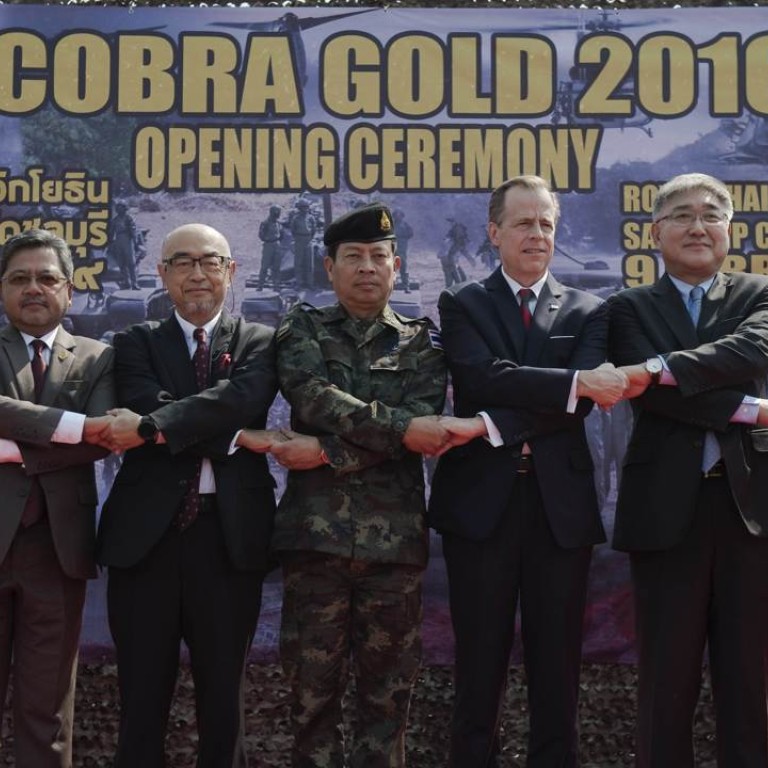
Massive ‘Cobra Gold’ military drills begin amid North Korea, South China Sea tensions
The largest multilateral military exercise in Asia-Pacific kicked off on Tuesday in Thailand, amid rising regional tensions after North Korea’s latest rocket launch and Beijing’s plays for territory in contested areas of the South China Sea.
The exercise, attended by some 27 countries this year, also comes with the United States maintaining a scaled down presence due to a 2014 coup in Bangkok and calling for a swift return to democracy.
It also follows an attack in Jakarta last month that killed eight and was claimed by Islamic State, the radical group’s first assault on Indonesia.
Strategic rival China will also take part in some humanitarian joint exercises, at a time when the US is closely watching Beijing’s increasingly assertive stance in the South China Sea.

Tensions have risen in the last two years after China built islands on disputed reefs in the Spratly Islands chain that China’s neighbours fear could be used to threaten their territories.
Some 3,600 US troops are in Thailand for the 11-day exercises alongside soldiers from regional nations including Thailand, Japan and Malaysia.
US ambassador to Thailand Glyn Davies hailed the bond between Washington and Bangkok but recognised “temporary challenges” to the relationship.
“As deep and broad as our partnership is today, it will grow stronger still when, as the (Thai) Prime Minister has affirmed, Thailand returns to elected governance,” he said in opening remarks.
“With a strengthened, sustainable democratic system, Thailand’s regional leadership role, and our alliance, can reach its full potential.”

Premier Prayut Cha-O-Cha said last week elections would be held in the summer of 2017, irrespective of the political conditions at the time.
The US envoy’s comments come as Thailand is making overtures to China, a major trade partner and source of cheap loans whose policy is to stay out of the domestic affairs of its allies.
The US has tried to walk the line between its longstanding alliance with Thailand and condemning the coup, which has been followed by a protracted clampdown on dissent.
In the wake of the army power grab, Washington suspended $4.7 million in security-related aid to Thailand, roughly half of its annual assistance.
But relations have since warmed.
Thailand’s long-running political conflict broadly pits a Bangkok-based middle class and royalist elite, backed by parts of the military and judiciary, against rural and working-class voters loyal to ex-premier Thaksin Shinawatra.
Additional reporting by Agence France-Presse

